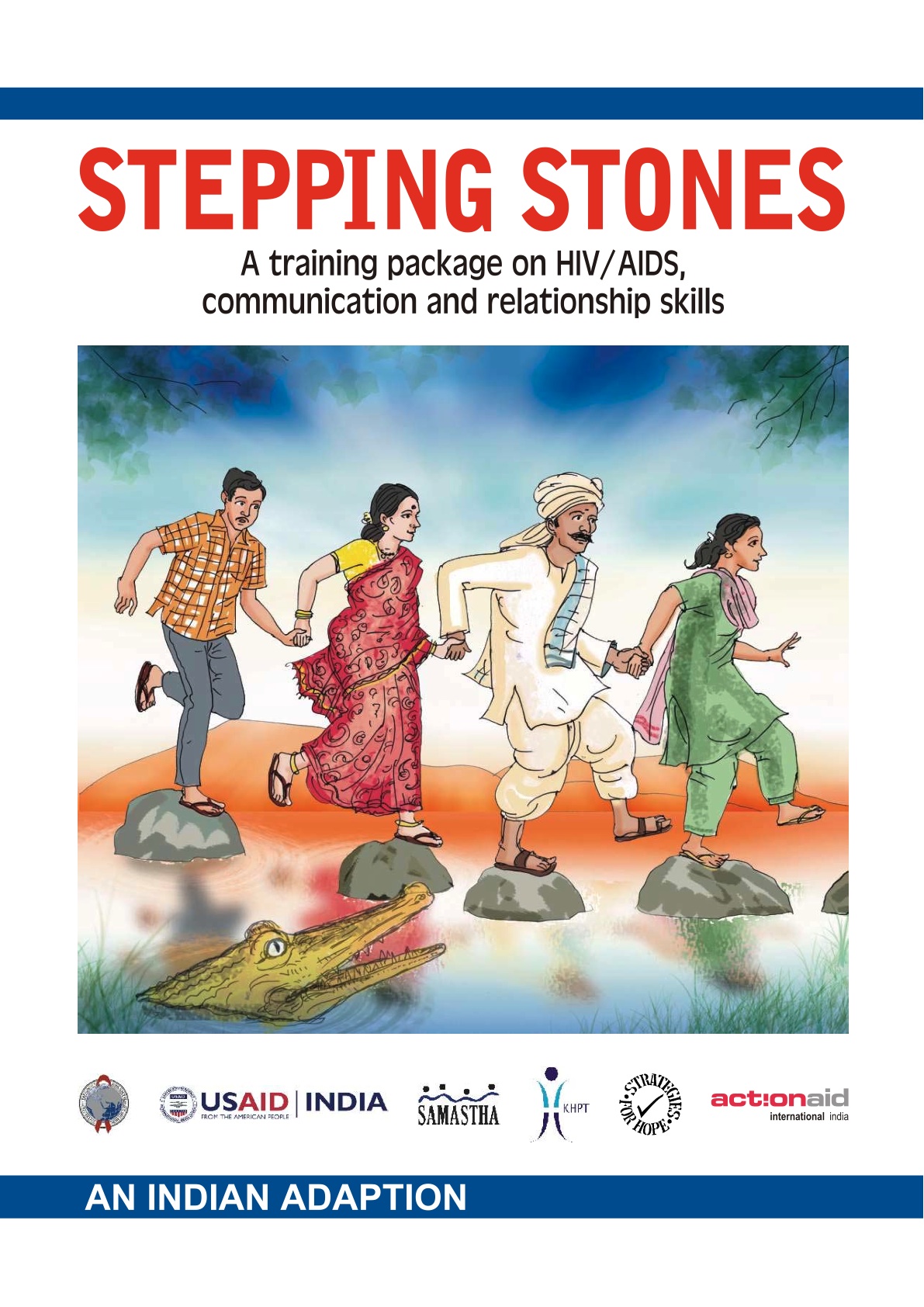Stepping Stones in India

Stepping Stones in India
Stepping Stones has been adapted for use in communities in India. It has also been adapted for use with sex workers, with people in prison, with people with impaired eyesight and other disabilities, and with healthworkers. See the resources below for relevant articles about the use of Stepping Stones with each of these key groups.
The adapted manual has been translated into 8 Indian languages: Telugu, Hindi, Bengali, Kannada, Urya, Tamil, Marathi, Gujarati. There is also a Braille English edition.
In India, the four peer groups are divided according to their marital status – married men, married women, unmarried men, unmarried women. This was deemed to be a more relevant division in the Indian cultural context than to work with age groups.
Stepping Stones started in India as a result of the efforts of Linnea Renton and Jacqui Bataringaya, then both of ActionAid. The first training of trainers workshop was delivered by Gill Gordon, Linnea Renton and Lovemore Magwere in the province of Sikkim, in the North-East of the country.
One of the biggest challenges for ActionAid at the time was to address HIV issues on the one hand and education, food, gender issues on the other hand. Stepping Stones was adopted as a way to integrate all these different areas of work into one project only.
Stepping Stones has also been widely developed, adapted and implemented by KHPT (the Karnataka Health Promotion Trust). Click here to see an interview with Parinita Bhattacharjee of the Karnataka Health Promotion Trust about their work with Stepping Stones in India.
In 2011, Amandine Bollinger of Salamander Trust learnt from Stepping Stones practitioners that the programme had stopped Early Child Marriage in the communities where it was being used (see page 12 here).
Resource Links
- SS_Amandine_Bollinger_India_Aug2011.pdf
- SS_BMC_Evaluation_India_2011.pdf
- SS_Disha_Foundation_Adaptation_Prison_India_2011.pdf
- SS_Karnathaka_Implementing_SexWork_India_2008.pdf
- SS_Karnathaka_Register_SexWork_India_2008.pdf
- SS_People_with_special_needs_India_2008.pdf
- SS_EngenderHealth_Men_2006.pdf
- SS_Women_Centered_Health_Evaluation_India_2006.pdf
- SS_ActionAid_Workshop_implementation_India_2004.pdf
- SS_ActionAid_WomenCenteredHealthProject_2002_India.pdf
- SS_ActionAid_Workshop_Adaptation_India_2000.pdf
- SS_ICRW_Gupta_Gender_Sexuality_2000.pdf
- SS_Oxfam_Publication_Parinita_India_2000.pdf
- SS_KHPT_Training_Trainers_India.pdf